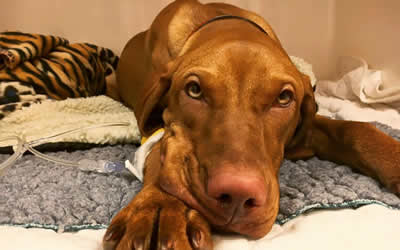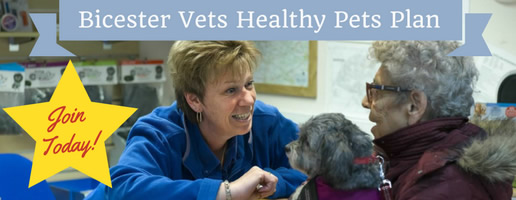Anaesthesia and surgery
 It is natural to be concerned about anaesthesia and surgery. Whilst no-one has yet devised “risk-free anaesthesia” modern drugs, techniques and protocols can minimise these risks.
It is natural to be concerned about anaesthesia and surgery. Whilst no-one has yet devised “risk-free anaesthesia” modern drugs, techniques and protocols can minimise these risks.
Bicester Vets has access to the most modern anaesthetic drugs and the equipment to administer them. The Vet will adjust the anaesthetic protocol to the needs of the individual patient and may also recommend / perform pre-anaesthetic tests, such as blood tests or x-rays.
This helps to minimise anaesthetic and surgical risks to the patients.
Preparing for your pet’s anaesthetic
• Do not feed dogs or cats after 8.00pm the night before.
• Cats must be kept indoors to prevent feeding overnight.
• Make water available to your pet overnight.
• Please take dogs out to the toilet before bringing them into the surgery.
• Guinea pigs, rabbits and other small herbivores should not be starved and please bring some of their food in with them.
Admitting
• Please arrive at Bicester Vets between 8.00am and 9.00am on the day of the procedure
• Nurses admit animals in the order they arrive and sometimes there may be a short delay.
• The nurse will go through the operation with you and ask you to complete and sign a consent form.
Pre-anaesthetic Blood Tests
• Bicester Vets recommend pre-anaesthetic blood testing to help detect underlying disease.
• A blood sample is taken on the morning of the anaesthetic if requested.
• Results are obtained within approximately half an hour.
• If the results are abnormal, the vet can take precautions to safeguard your pet’s health and reduce the risk of potential complications.
Intravenous Fluids
• IV fluids are often recommended for anaesthetic procedures to ensure optimal blood flow through organs during the anaesthetic and to aid recovery post op.
• In some cases, this will be mandatory and for others it will be optional.
• If you are in any doubt about this option, then please discuss it with a member of staff.
The Anaesthetic
• Initially, a drug is given that acts to calm and relax the patient – this is called a “pre-med”.
• Just before the procedure, your pet will be anaesthetised. They are unaware of what is happening to them and they feel no pain.
• Throughout the anaesthetic, your pet will be closely monitored. There will be a nurse dedicated solely to your pet throughout the entire anaesthetic.
Recovery
• After the anaesthetic, your pet will slowly wake up, during this time they will be monitored by a nurse.
• The patients are kept warm and comfortable throughout this period.
• A vet will contact you to let you know how the operation went and arrange a convenient time for you to collect your pet.
Going Home
• When you come to Bicester Vets to collect your pet, a nurse will go through all the details of the discharge with you.
• Your pet may be a little drowsy when they come home.
• Your pet may have a slight cough or may be sick as an after effect of the anaesthetic.
• You may notice hair missing from one of your pet’s front legs and/or neck; this has been done to facilitate anaesthesia or blood sampling.
• A small amount of water should be made available and if your pet appears hungry, you may offer a small meal later that evening, normal feeding may resume the following day.
• Your pet should be kept warm and quiet overnight to aid recovery.
• Please follow any specific instructions given by the vet or nurse at the time of collection.
We will do our best to accommodate your busy schedule
Please note that you do not have an appointment until you receive confirmation from us. Thank you


